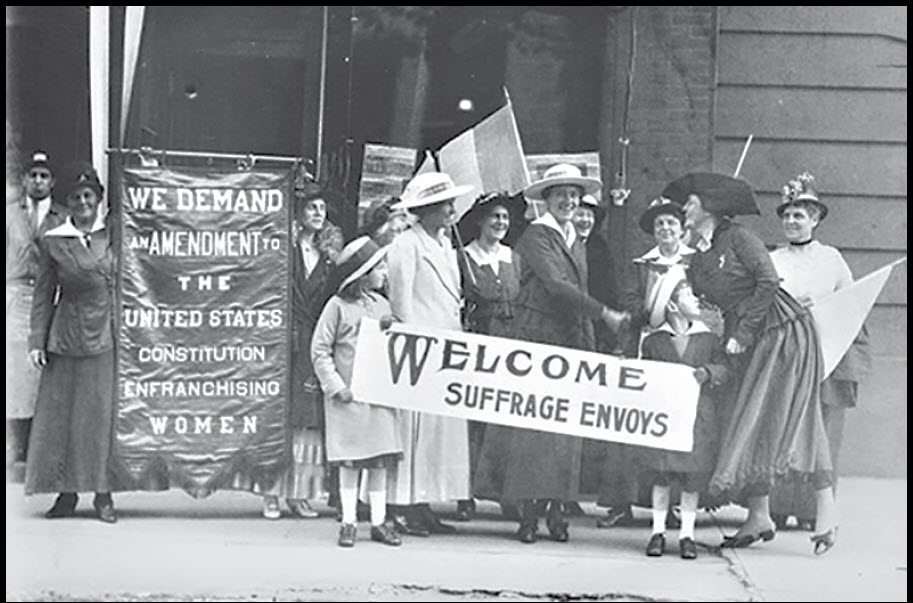The 19th Amendment
 By: Wanda Campbell
By: Wanda Campbell
From the Constitution of the United States of America:
“The right of citizens of the United States to vote shall not be denied or abridged by the United States or by any State on account of sex. Congress shall have power to enforce this article by appropriate legislation.”
This year is the 100th anniversary of the 19th Amendment to the Constitution. Realizing this milestone required a long and challenging struggle; victory took decades of tension and protest.

In 1878, suffragists Susan B. Anthony and Elizabeth Cady Stanton introduced the proposal that would become the 19th Amendment. The National American Woman Suffrage Association was an organization formed on February 18, 1890, to advocate for women’s suffrage in the United States. It was created by the merger of two existing organizations, the National Woman Suffrage Association and the American Woman Suffrage Association.
In September 1918, President Woodrow Wilson addressed the Senate in favor of votes for women. “We have made partners of the women in this war; shall we admit them only to a partnership of suffering and sacrifice and toil and not to a partnership of privilege and right?” Nevertheless, it would take Congress over forty years to finally pass the proposal. In the meantime, women marched, protested, lobbied, and even went to jail in order to win the right to vote.
One of the biggest challenges in securing women’s suffrage was the ratification process. For an amendment to be added to the Constitution, two-thirds of Congress had to approve it. This means the proposal had to be approved by two-thirds of the House of Representatives and by two -thirds of the Senate. The proposal then had to be approved by two-thirds of the states.
On May 21, 1919, the House of Representatives passed the amendment, and two weeks later, the Senate followed. June 10, 1919, Illinois, Michigan, and Wisconsin would become the first states to ratify the amendment. When Tennessee became the 36th state to ratify the amendment on August 18, 1920, the amendment was adopted. It would be September 8, 1953 before Alabama showed its support for women’s suffrage by officially ratifying the 19th Amendment.
Government recognition of a woman’s right to vote was an important milestone for women’s history and for America. But not all women benefited from the passage of the 19th Amendment. Even though they were legally able to vote now, African-American women were often barred from the polls. Native American women were also not considered US citizens until 1924 and could not vote. The fight for women’s suffrage demonstrates the degrees of the political process. It also reveals the complexity and diversity of the American people.
But more than that, it shows that voting can make a difference. The general election is coming up November 3, 2020. You need to register to vote by October 19, 2020. The last day to request an absentee ballot is October 29, and it has to be delivered by November 2. If you have questions, please call the Board of Registrars at 256-233-6405.
By: Wanda Campbell
Center for Lifelong Learning – 121 South Marion Street, Athens, AL 35611 – 256-233-8262